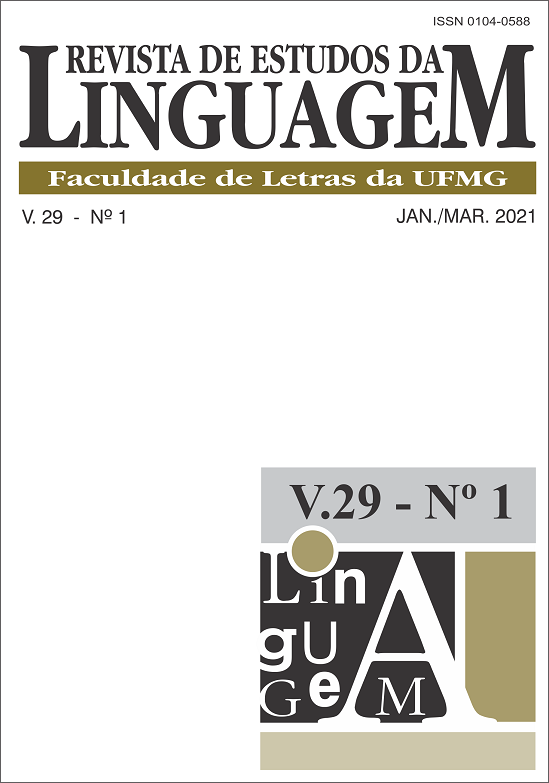Agressão como descortesia em uma discussão no Facebook sobre discriminação de classe em uma universidade brasileira
DOI:
https://doi.org/10.17851/2237-2083.29.1.363-386Palavras-chave:
agressão, descortesia, identidade, narrativas, discriminação, Facebook, comunicação digitalResumo
Este artigo exemplifica o emprego de agressão como descortesia na comunicação mediada, ou digital, no português brasileiro, observando-se o desempenho de tais ações linguísticas no contexto de uma discussão sobre discriminação de classe. Especificamente, investiga-se a relação entre agressão linguística como descortesia e identidade tal como observada em uma campanha em uma página do Facebook sobre uma universidade brasileira. A página sob consideração foi projetada como uma plataforma aberta para disseminar e chamar a atenção para exemplos de comportamentos discriminatórios vivenciados pelos estudantes de comunidades periféricas frequentando uma universidade de elite no Rio de Janeiro. Os membros desta comunidade estudantil estavam no centro de uma controvérsia, por supostamente terem sido admitidos na instituição por meio de programas sociais promovidos por governos anteriores, de tendência esquerdista. Este artigo examina o uso de agressão linguística como descortesia, tais como chamar nomes, i.e., dirigir-se a alguém empregando termos insultuosos, e discordar diretamente (Lorenzo-Dus; Blitvich; Bou-Franch, 2011), para comunicar diferentes opiniões sobre, ou argumentar contra, as percebidas instâncias de discriminação supridas pelos estudantes na campanha e subsequentemente discutidas pelos participantes nas suas postagens. Estas estratégias de descortesia ratificam as identidades no contexto da discussão, marcando membros e não-membros do grupo, na medida em que os participantes 1) alinham-se contra, ou 2) justificam os comportamentos descritos.





